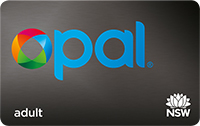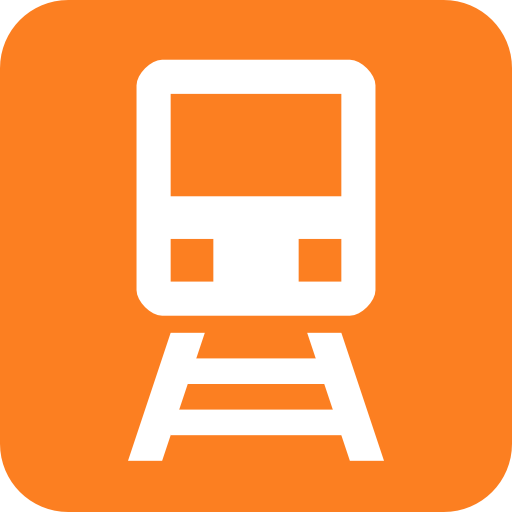Travelling Around on Public Transport
NSW has a large network of public transport services including buses, trains, light rail (trams) and ferries. To access public transport, we recommend getting a NSW Opal Card, which is a pre-paid travel card accepted on all trains, buses, ferries and light rail. It is a convenient way to pay for your travel as it calculates costs for you and you just need to tap on the machine when you get on an off public transport.
Get Your Opal Card
 Adult Opal Cards are available over the counter from certain retailers, including convenience stores and newsagents. You can recharge your opal card via the Opal travel app, online or on the phone using your credit card (13 67 25). If you would like to remove the hassle of recharging the card each time, you can set up a certain amount for automatic top-up every time the amount on your Opal Card goes below $5. This can be on registered Opal Cards online or on the app. You can also order an Opal Card online.
Adult Opal Cards are available over the counter from certain retailers, including convenience stores and newsagents. You can recharge your opal card via the Opal travel app, online or on the phone using your credit card (13 67 25). If you would like to remove the hassle of recharging the card each time, you can set up a certain amount for automatic top-up every time the amount on your Opal Card goes below $5. This can be on registered Opal Cards online or on the app. You can also order an Opal Card online.
Note that international students need to purchase an ‘Adult’ Opal Card as the ‘Concession’ option is only available to domestic students.
However if you have a valid American Express, Mastercard or Visa bank card, you can use that instead of an Opal Card. Just remember to use the same card to tap on and off!
Helpful Travel Apps
 The TripView and TripView Lite apps can help you to create trip plans for trains, buses, ferries, light rail and coach services. You can plan your trip based on stations, wharves or bus stops. It will list all timetabled services with real-time data.
The TripView and TripView Lite apps can help you to create trip plans for trains, buses, ferries, light rail and coach services. You can plan your trip based on stations, wharves or bus stops. It will list all timetabled services with real-time data.
The difference between TripView and TripView Lite is that the former is a paid app, and will save each trip plan so you can easily access the timetable of previous routes you have taken. The Lite version does not save trip plans meaning you will need to input your route each time you want to check any timetable, and includes advertisements.
Setting Up A New Bank Account
Opening a bank account in Australia is a simple and quick process. You can either visit a bank or open it online before coming to Australia. Most banks in Australia allow you to open an account up to three months before you arrive in Australia through an online application form on their website.
You can compare the different types of bank accounts and see which is most suitable for you.
In Australia, most banks use a points system for documentation to open a new account. In many cases, you will need to present documents that can add up to at least 100 points. Here is an example:
- Birth certificate
- Birth card issued by NSW Registry of Births
- Citizenship certificate
- Current passport
- Expired passport which has not been cancelled and was current within the preceding two years
- Other document of identity having the same characteristics as a passport including diplomatic documents
- Driver license issued by an Australian state or territory
- Road and Maritime Services Photo Card
- License or permit issued under a law of the Commonwealth, a State or Territory government
- Identification card issued to a public employee
- Identification card issued by the Commonwealth
- An identification card issued to a student at a tertiary education institution
- A document held by a cash dealer giving security over your property
- Council rates notice
- Land Titles Office record
- Document from your current employer or previous employer within the last two years
- A mortgage or other instrument of security held by a financial body
- Marriage certificate (for maiden name only)
- Credit card
- Foreign driver license
- Medicare card
- EFTPOS card
- Record of primary, secondary or tertiary education institution attended by you within the last 10 years
- Record of professional or trade association of which you are a member
Stay safe when you’re out…
- Always plan your trip home, especially at night. Make sure you have enough money to get home before leaving
- Try to travel with a friend or in a group
- Always have a mobile phone, a phone card or money to make any phone calls
- Use pedestrian walkways when crossing the street
- Leave valuables at home if you don't need them
- Never carry large amounts of money
- Call 000 in the event of an emergency